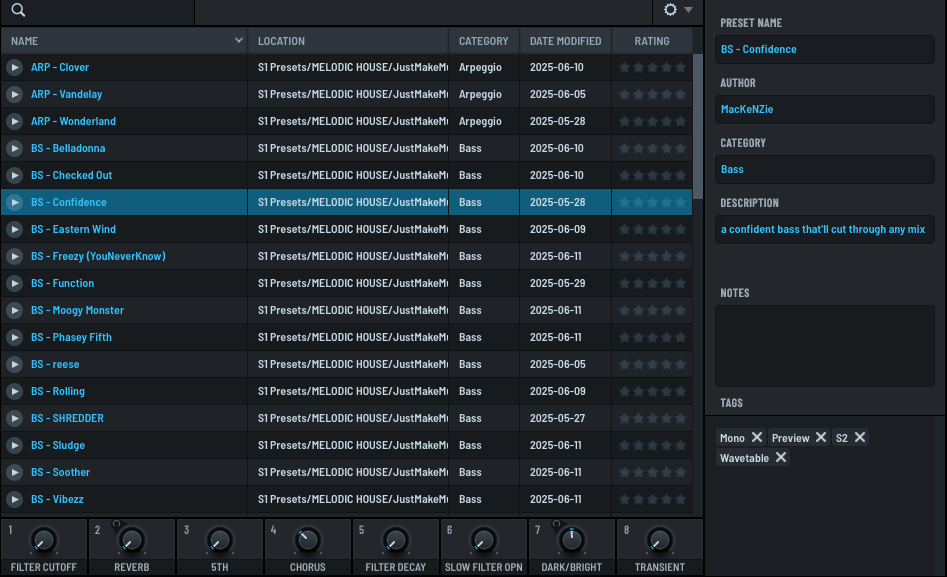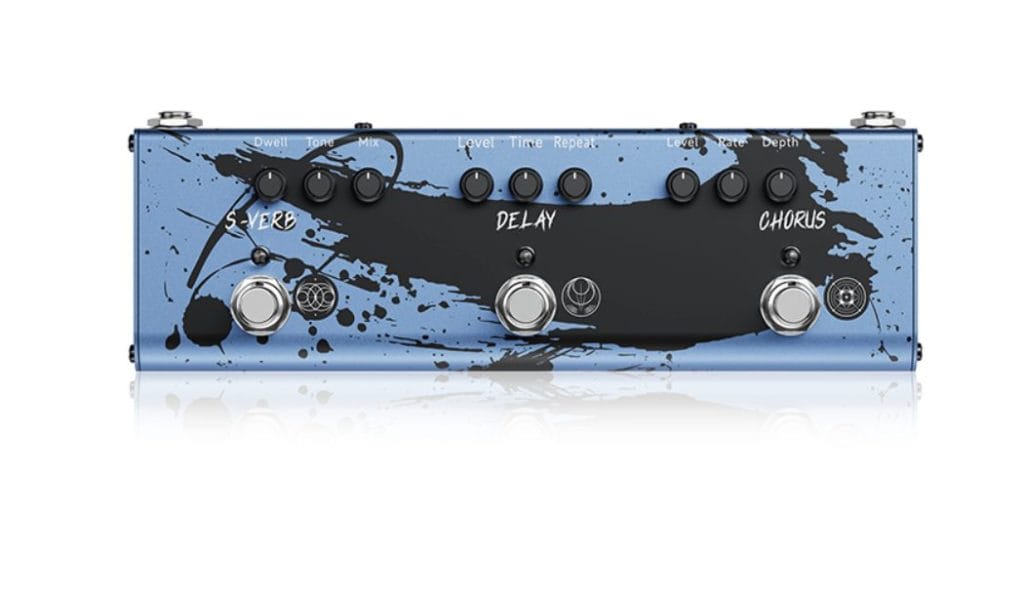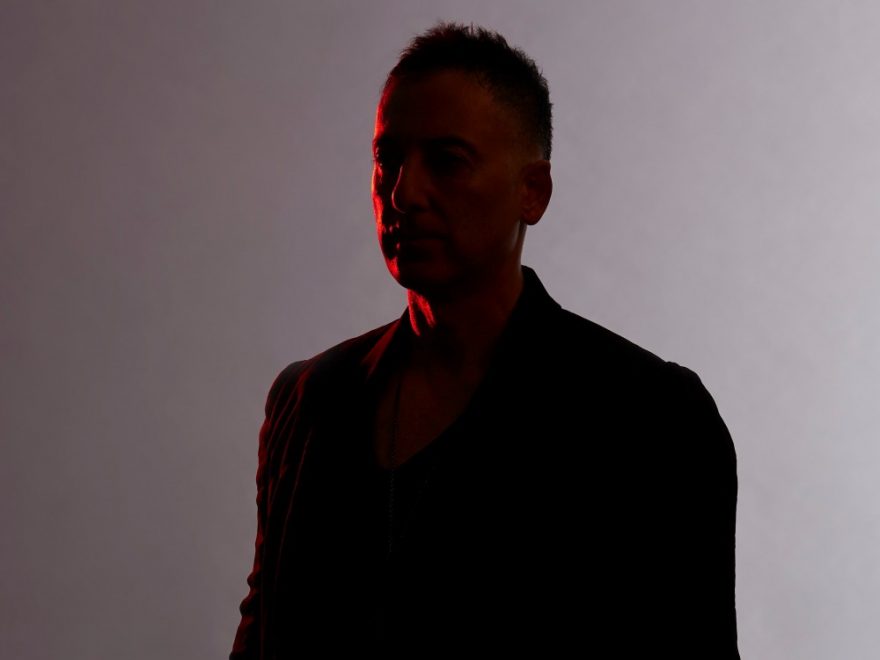After almost 30 years in dance music, Ali Shirazinia, who performs and produces under the name Dubfire, is always finding new avenues of expression. Considering Shirazinia’s career spans the near-entirety of dance music’s independence in the worldwide musical zeitgeist, he exists, in some ways, as a living blueprint of constant innovation.
Throughout his extensive solo ventures and his time with Sharam as Deep Dish prior, his productions, his DJ sets, his label curations under Sci+Tec and everything else he touches defines how eclectic and unpredictable dance music can be. The only thing anyone can expect from Shirazinia is to be surprised, and his latest EP, Lotus, is the embodiment of this truth.
From the exquisite overtones that demonstrate his underlying talent for melody, to the fact that he collaborated with Carl Craig on this progressive symphony, to his long-time-coming debut on longtime friend Damian Lazarus’ Crosstown Rebels label, excitement is firing on all cylinders for the release
In short, this EP is full of twists and sonic somersaults. But, as gathered from Dancing Astronaut‘s recent conversation with the man of many international dancefloors, it’s clear that Shirazinia has plenty more surprises ready for the near future and beyond.
Dancing Astronaut secured an exclusive stream of the EP’s lead single, ahead of its official Friday release. Find the single and our interview below.
1. You’ve stated, “In this business, you really have to think about longevity.” This seems to be a philosophy you’ve applied well. Considering the elevated status of dance music is enjoying right now, what are you doing to ensure you and dance music will remain relevant in the future?
I don’t think we’ve ever been in danger of dance music fading into the background; if anything it’s continued to evolve and grow, gradually injecting new life into mainstream pop, R&B, and rock over the years and becoming the dominating presence.
Today, its influence is immeasurable and I am firmly entrenched within the fabric of electronic music. Remaining relevant then becomes a good problem to have as you cannot become complacent. You’ve got to continue to innovate in the studio, on the road, and in media. I feel like I have, and continue to, do that; whether it is acknowledged universally is not something I have control over so it’s best to simply hunker down and focus your energies on doing your best work.
2. With almost 30 years in dance music under your belt and all the accolades that come with that, what sort of new challenges are you taking on at this advanced point in your career?
As the electronic music scene has evolved, so has the studio and performance technology, production styles, delivery methods of the music, as well as marketing and social media requirements. These in themselves pose daily challenges one must overcome.
For me personally, about a decade ago I came to a realization that I will not make any compromises on my legacy; the work I leave behind must be honest. And I must not repeat myself. So I tend to gravitate towards musically challenging projects: interesting collaborations or obstacles like the HYBRID live show and the current EVOLV show I have been developing. Flexing my DJ chops with marathon sets or varied full-throttle techno and deeper house performances have also become a fixture of my identity.
3. Let’s talk about the Lotus EP. Tell me a bit about how it came about. What lead to Tibi Dabo doing the remix?
To be perfectly honest the original version was always meant to part of the new material Sharam and I were recording for a future Deep Dish album. But like old times, we couldn’t agree on a musical compromise. And since “Lotus” was something I had developed, I took it back and reworked it.
Carl’s involvement was quite organic and beautiful: he happened to be in LA while we were recording and I told him to pop over to the studio to hang and maybe dick around a bit on keys. That led to him channeling this classic sounding riff that just had me floored. I had been friends with Kate for years but we’d never worked together and she also delivered an incredible vocal.
And it was Damian who suggested Tibi Dabo for the remix as I hadn’t heard of him before. Needless to say, he did an incredible job and we quickly became friends since he also resides in Barcelona.
4. What was it like collaborating with Carl Craig on a production? Did you know from DJ-ing together that you would have chemistry in the studio as well?
Carl has been a mentor to me since our second Deep Dish release back in 1992. We’d always wanted to work together but our solo commitments were constantly in conflict. I think that we finally managed to overcome that and perhaps “Lotus” will usher in deeper musical collaborations. The one thing I am certain about is that we both actively talk about that so it’s just a matter of scheduling. Plus Carl has a stunning new studio in Detroit that would be amazing to work in!
5. A significant part of your identity as an artist is your use of technology. What pieces of equipment were foundational to this EP?
To a degree, it IS the technology that’s the catalyst, driver or conduit for new exploration, but with this project, I resorted to some old methods. For instance – and I’m going to nerd out here for a second – one thing I LOVE to do as a producer is bring in session musicians to play guitar solos, riffs, etc. As I also play the guitar, oftentimes I’ll simply do it myself.
Then my engineer and I will sift through the lot, keeping only the pieces I like, running them through an endless chain of plugins (like Guitar Rig, my fave!). You can quickly make standard guitar playing sound like an organic synth performance which adds layers and layers of atmosphere to a track, enabling you to quickly get a vibe going. It works every time and something that came in handy with “Lotus”.
6. Across your career, you’ve established your reputation as never being tied to one sound. This EP sees you adopt a more progressive, melodic sound. How does your process differ in the early stages of producing a melodic track compared to producing a more raw track?
The simple answer is that I just do what feels appropriate for that particular session. Obviously, with remixes you have to consider the label or the artist. But with original music, we just turn on the machines and try to see what kind of magic we can make happen. Sometimes that warrants a higher BPM or darker sound but I don’t like to work with any pre-ordained parameters. That liberation is crucial to the creative process.
7. The melodic sound you’ve employed on this EP makes it a perfect fit for Damian Lazarus’s Crosstown Rebels. Damian is another veteran of the scene. You two have known each other for many years, have DJ’d together before, but this will be your first official release on his label. How does it feel to join the ranks of so many other revered artists who are also your peers?
Damian is the “wizard.” He’s one of my favorite DJs to just get lost to. He’s always been an inspiring energy to be around so we naturally became fast friends and I was always wanting to do something for his label. “Lotus” came along and just seemed like the right fit so I was honored that it spoke to him too.
8. What do you have planned for the rest of this year? What about the next decade?
I don’t like to look around the corner at every turn; I like to live in, and enjoy, the present moment. So that is always my focus. But of course, there are numerous projects I am juggling at the moment, like remixes for Kevin de Vries, something for Drumcode, collaborations with Kölsch and a final one with Oliver Huntemann, my new EVOLV original material which is all done, as well as the new show we’ll be launching in the fall.
There will be a major Dubfire rebrand as well which will see a change in my aesthetic. And I’ve already begun work on a more indie album; something which got off the ground with “The End to My Beginning,” which came out at the tail end of 2018 on Solomun’s label. I’m quite excited about that one.






